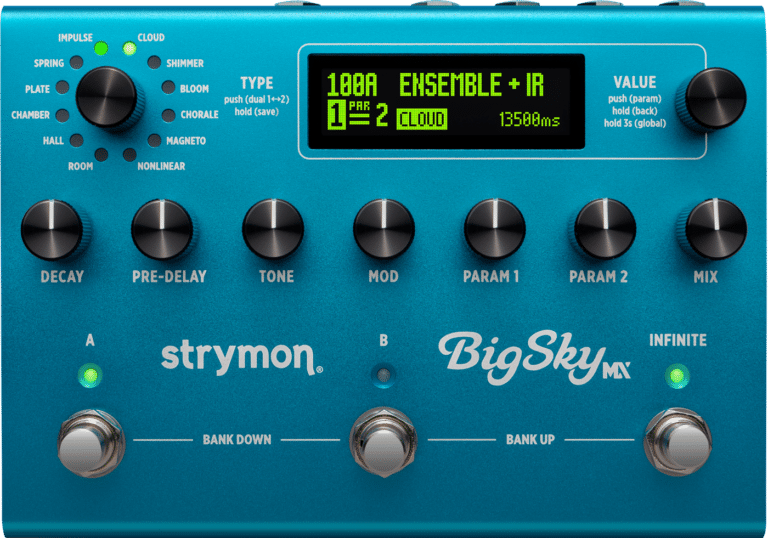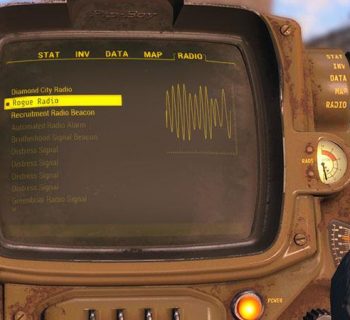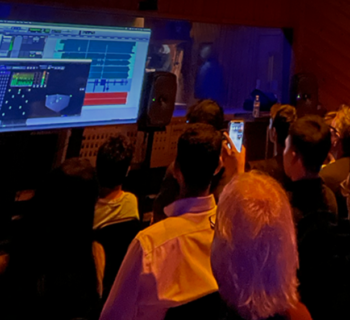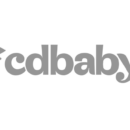No Honor Among Thieves
Let me begin by admitting this article is a cover version of Dirk Diggler’s column “5 Tips for Making Your Lady Happy” from the March 1978 issue of Men’s Reproductive Health.
A cover band can scratch your creative itch, ensnare you in random romantic encounters, and even pay your rent and healthcare and support your bad habits (and children) if you’re awesome and smart and hard-working and lucky. Best job I’ve ever had. Strongly recommend.
I’m a singer, multi-instrumentalist, songwriter (yes you can still do that), producer and band leader in Yacht Rock Revue. We specialize in Yacht Rock, obviously—the smooth sounds of the late ‘70s and early ‘80s made by incredible musicians like Michael McDonald, Steely Dan, Hall & Oates and Kenny Loggins. We opened for Loggins on his final tour last year, have performed with John Oates, Eddie Money, Gary Wright, Robbie Dupree and a bunch of other artists you hear on the SiriusXM station. No, we don’t have a stake in that station, but I do think we are part of why it exists.
There’s nothing wrong being the guy in the baseball cap and an acoustic guitar in front of a wall of hot sauce playing Van Morrison covers on your own PA. I’ve been that guy. These hot tips are for those ready to journey beyond the tip jar. Initiative and preparation will be required. It’s an investment of time and resources and brainpower. You have to be fastidious and disciplined in some respects, reckless and instinctual in others. You might imagine this to be an easy or cheap route. It is not. I’ve seen many incredible players, some of whom have toured in wildly successful bands, flailing in their attempts to pivot to a cover band.
What does it mean to be “original” in a cover band? It means elevating your show in some way that differentiates you. Being original doesn’t necessarily mean you’ll be able to make a living. Contraband is a group that provides the soundtrack verbatim as a player beats the Nintendo Game Contra on a screen behind the band. Awesome band and concept, but probably not a career on its own. To make a living at this, you’ll need to make LOTS of people happy. Happy enough to buy tickets and tell their friends. Your differentiating qualities will need to be qualities that connect with an audience.
When we started in 2007, no “cover” bands were doing shows on the scale we are now (headlining small amphitheaters on our own and opening for Train and REO Speedwagon this summer in sheds), outside of Australian Pink Floyd and the ultimate hair metal tribute pioneers: Steel Panther. The guys in Steel Panther don’t trust anybody with sleeves, man. I studied Steel Panther closely when we realized our band was going to be more than just a hobby or side hustle… to be honest we are a soft rock cover of Steel Panther.
They had every element of their show nailed. It was all familiar, yet unlike anything I had ever seen. They’ve leveled up in the years since and turned their band into a fully original band that only sprinkles in covers, making their own records and touring their own show. They’re living the ‘80s spandex and hairspray dream.
And as far as I can tell, Steel Panther still follows all five of these rules:
Own It
You’ve got to play this music as though it’s your own, as though each song you sing is the most important song in the world for this moment. When you’re committed the crowd can tell. If your performance is timid and apologetic, they can smell it on you like animals smell fear. It’s a mindset and it can be hard to maintain that mindset in front of a sparse audience, but that’s the most important time to bring it. No matter how good and successful you are, there will be small audiences. Especially on the way up (and I am presuming on the way back down, I’ll let you know.)
I often tell people our secret is that we perform these soft rock hits as though they’re Van Halen or AC/DC songs. Don’t be afraid to adjust elements of the original track to add energy: tempo, volume, augmenting instrumentation, endings, etc. are all fair game. Be judicious in how you take these liberties, because it’s also fun to nail a song note for note with all the little details for the music nerds. Balancing between precision and rock and roll energy is key. If you’re having fun so will the audience. If you don’t have that energy, I can’t help you. This is more important than my below points combined.
Have An Angle
Easy for me to say, the guy with the biggest yacht rock band in the world (Is that a brag? A humble brag? Or is it self-deprecating? You decide). None of this would have happened to me if JD Ryznar, David Lyons, Hunter Stair and Hollywood Steve Huey hadn’t coined the term “Yacht Rock” in their viral YouTube series. We were going to call our first show ‘70s AM Gold, and we discovered their wonderfully creative DIY take on the comedic misadventures of Michael McDonald and Steely Dan a few weeks before.
That seemed like a more concise name for the set list we had put together, which was based on what we called “The Dentist Office Mix” (Which actually would be a great yacht rock cover band name). The concept and personas they created permeated pop culture as our band was on the rise. Tremendous good fortune for us, and we were well-positioned to take advantage.
Anyways, branding and marketing are important. Yacht Rock is now an instantly recognizable brand—captains hats, nautical imagery, fruity drinks, flamingos. People need to know what they’re coming to see, and it needs to seem really fun at a glance. Attention spans are short and getting shorter. Of course there are bands out there doing what you’re doing—there are probably a hundred Yacht Rock bands in the U.S. alone. But if you find your own angle on it, your unique cocktail of ingredients, then you can stand out.
Form a sound and a visual identity and a vibe. If your Neil Diamond tribute has a gunslinger on guitar, don’t be afraid to let him rip. I’ve seen it work. Each player should incorporate the key stylistic elements from the original songs, but also find the right moments to bring some of their own sauce to the barbecue. It’s easier for the audience to suspend disbelief and feel like your show is a “real” show if you actually look cool.
Wear what works for you, riff on your source material instead of taking it literally. If your band uniforms look like you should be playing at Six Flags, you might look sharp-ish the first time someone sees you… but there’s a ceiling to that approach.
Change It Up
If every show has a little something different for people to talk about, that will keep them coming back. Make incremental changes, and never stop changing. You don’t have to always open the set in the same way, or play the same song as the encore. If every gag is the same every time, there’s no surprise in the “surprise and delight.” Always be expanding your set list, giving songs a rest when you’re tired of them, trying something new, challenging yourself. The edge and excitement that freshness gives your band will translate to the crowd.
Don’t Be A Shmuck
Be kind to everyone who works in the venues. You’re not Prince even if your job is pretending to be. You’re in show business and so is the person running your monitors and working security at the door and pouring your drink.
Don’t pander to the worst instincts of your audience. There will be times when they behave badly, but that doesn’t mean you have to react in kind. You don’t have to say yes to every request, but you probably shouldn’t turn down every request either.
Don’t engage in petty rivalries with other bands and musicians, because you know who doesn’t care about any of that BS? Your audience.
Let Your Audience Lead You
This one applies to all bands, a fact of life I learned far too late to save our indie rock band.
It’s not about you. It’s about how you make people feel.
When we started Yacht Rock Revue, we played every Thursday night in a basement club for four years straight. I knew the gig well enough to be able to spend a lot of the time watching the audience. I was always wearing mirror sunglasses so they couldn’t tell I was watching them. Mirror sunglasses also allow you to pretend you can’t hear someone’s requests, even if you can. The person you’re talking (or not talking) to also can’t tell which of their body parts you’re looking at. No eye contact. Highly recommend.
But I digress. You can learn so much by really paying attention to what pushes your crowd’s buttons. We didn’t have any preconceived notions about what a “Yacht Rock” show was supposed to be when we started. We tried a bunch of stuff in the ballpark and kept what connected and ditched what didn’t. And that wasn’t just regarding the songs in the set list - we watched for which dances had the audience trying to imitate us, which jokes landed and which fell flat (like when we tried to bring back the Budweiser “WASSSUP” commercial on stage), which sax solos had the effect of suddenly turning random audience members into amateur strippers…
Take these nuggets of wisdom, go forth and prosper. It’s not easy. Or maybe it is and now all of my secrets are out and every Yacht Rock band will be as good as ours. Expect your local iteration with a punny nautical band name to be sandwiched between the Taylor Swift Dance Party and Live Band Karaoke at the small theater down the street before you know it. Wish me luck and listen to our new album.
Escape Artist, the new double concept album by Yacht Rock Revue, is out November 29. Listen to the latest singles on Spotify.
The dynamic 10-piece ensemble Yacht Rock Revue features Nicholas Niespodziani (vocals, guitars, keyboards, percussion), Peter Olson (vocals, guitars, keyboards, percussion), Greg Lee (bass, vocals), Mark Dannells (guitars, vocals), Mark Bencuya (keyboards, vocals), David B. Freeman (saxophones, keyboards, flute, piccolo, percussion, vocals), Keisha Jackson (vocals, percussion), Kourtney Jackson (vocals, percussion), Jason Nackers (drums), and Ganesh Giri Jaya (drums).














